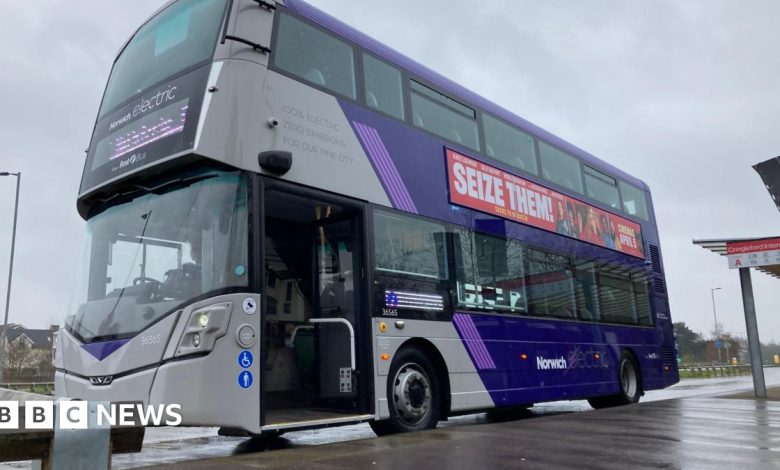UEA students call for lower bus fares in Norfolk and Suffolk

As a student at the University of East Anglia (UEA), getting around Norwich can be a challenge. That’s why many students rely on the bus service to get to and from campus, as well as to explore the city centre. For some time now, the university has offered its students an annual pass for £320, which works out to a reasonable £1.43 per day. However, recent changes to the bus fare prices have left many students feeling the pinch. In January, First Bus East of England, the company that operates the majority of bus services in Norwich, increased the cost of adult single fares to £3. This price hike has made it even more difficult for students to afford the bus fare, especially considering the rising cost of living.
The increase in bus fares is a result of the government’s decision to scrap the £2 fare cap, which was introduced to help ease the impact of inflation on citizens. The fare cap was a welcome relief for many, but its removal has left many students struggling to make ends meet. The cost of attending university is already high, and the added expense of bus fares is becoming a significant burden for many students. That’s why a group called Get on Board is advocating for First Bus to rethink its pricing strategy and introduce a fairer system. According to the group, the current cost of traveling by bus from the university campus to the city centre and back is simply unaffordable for most students. With the cost of living increasing year by year, student loans are not stretching as far as they used to, and the bus service is becoming a luxury that many cannot afford.
The situation is particularly concerning for students who rely on the bus service to get to and from campus. Many students do not have the option to drive or walk, and the bus is their only means of transportation. The increased bus fare is not only affecting their pocket but also their ability to participate in university life. Students are having to choose between attending classes, going to the library, or participating in extracurricular activities, and the cost of the bus fare is becoming a significant barrier. The Get on Board group is urging First Bus to consider the impact of its pricing strategy on students and to introduce a more affordable fare system. The group believes that a fairer system would not only benefit students but also encourage more people to use the bus service, which would have a positive impact on the environment and reduce traffic congestion in the city.
The issue of bus fares is not just a local problem; it’s a national concern. Many students across the country are facing similar challenges, and the government’s decision to scrap the £2 fare cap has had far-reaching consequences. The cost of attending university is already high, and the added expense of bus fares is becoming a significant burden for many students. It’s not just about the cost; it’s also about accessibility and equality. Students from low-income backgrounds are disproportionately affected by the increased bus fares, and it’s exacerbating the existing inequalities in the education system. The Get on Board group is calling on the government and bus companies to work together to introduce a more affordable and equitable fare system that benefits all students, regardless of their background or income.
The impact of the increased bus fares on students is not just financial; it’s also emotional and psychological. Many students are feeling stressed and anxious about the cost of attending university, and the added expense of bus fares is becoming a significant source of worry. The pressure to balance academic responsibilities with part-time jobs and other commitments is already high, and the cost of bus fares is adding to the stress. The Get on Board group is urging First Bus and the government to consider the human impact of their decisions and to work towards introducing a more affordable and sustainable fare system. By doing so, they can help alleviate some of the pressure on students and ensure that they can focus on their studies without the added burden of expensive bus fares.
In conclusion, the issue of bus fares is a pressing concern for students at the University of East Anglia and across the country. The recent increase in bus fares has made it even more difficult for students to afford the cost of attending university, and it’s exacerbating existing inequalities in the education system. The Get on Board group is advocating for a fairer and more affordable fare system that benefits all students, regardless of their background or income. By working together, the government, bus companies, and universities can introduce a more sustainable and equitable fare system that supports students and promotes accessibility and equality in education. It’s time for a change, and the Get on Board group is urging everyone to join the conversation and demand a better deal for students.








b42b1p